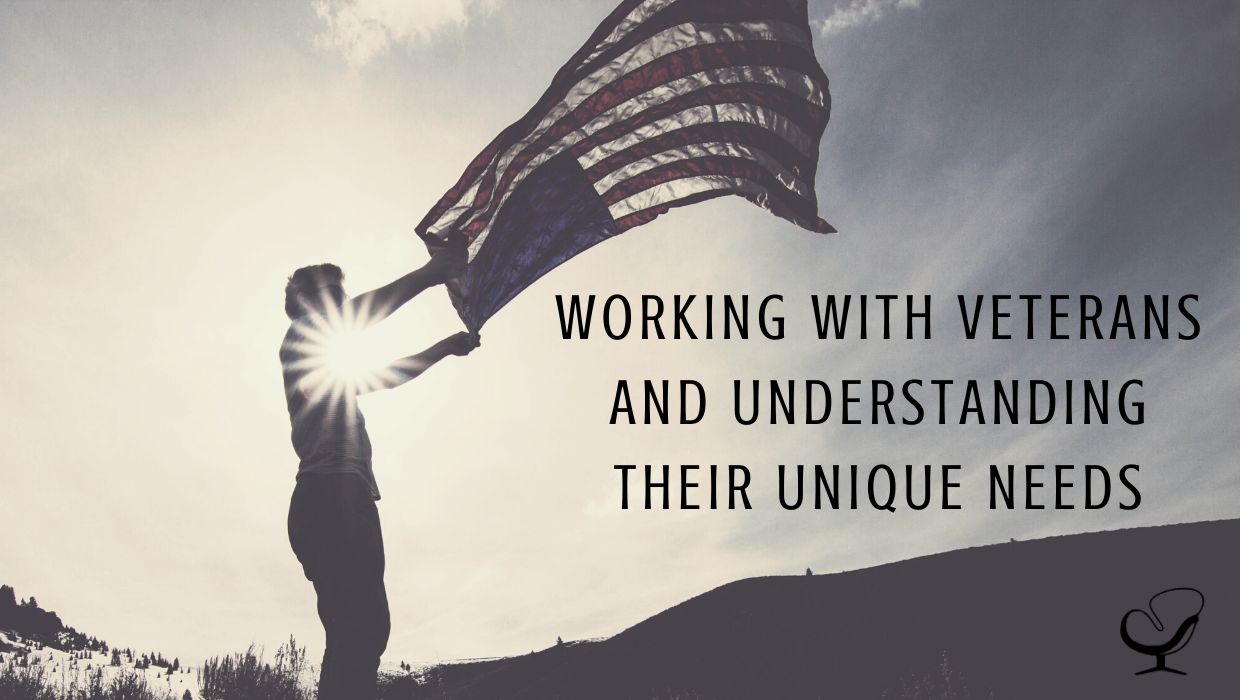During my career of working with Veterans (a population that includes me) and helping them begin and sustain recovery, I have found that they are in crisis and significantly underserved. Here are some reasons that Veterans are especially vulnerable and in need of mental health support, and also some of the reasons why they aren’t getting it.
Why Veterans Are in Need of Mental Health Support
Veterans are Suffering in Secret
The culture of the military can become a roadblock when it comes to members who have slipped into substance abuse. Veterans are trained to be brave, selfless, and overcome problems on their own. The Armed Forces breed a culture of self-discipline in which toughness is a cornerstone. Veterans are taught to value self-reliance and personal responsibility. The idea of asking for help with an addiction or another mental health issue may make Veterans feel weak and become a source of shame.
Another complicating factor is that drug use is completely illegal in the military, which has embraced a ‘zero-tolerance’ policy when it comes to any drug use. Alcohol abuse is “officially” discouraged, but “unofficially” condoned and even celebrated. Given these factors, the table is set for a Veteran to secretly slip into substance abuse, attempting to hide their abuse…and being too afraid or too ashamed to ask for help.
Transitioning Out of the Military
Veterans can also have a very difficult time with the transition to civilian life. There is routine and camaraderie when you’re serving on active duty. When you transition out of this team, you can feel isolated. Things like making friends and connecting with people can become confusing and scary. Even things that civilians do without thinking about, like how to dress and behave socially can be difficult. Therefore, seeking help for a substance abuse problem can be especially hard.
Sadly, the instance of Veterans committing suicide is shocking, with 20 dying per day – according to United States Department of Veterans Affairs (VA) in 2016
The Link between Trauma and Addiction in Veterans
Addiction is prevalent in populations who have experienced trauma. This definitely applies to Veterans, especially those who have lived through combat. Our warriors work hard to protect us and accomplish their missions with honor. When they return from deployments, they often suffer from chronic pain, brain injuries, and the after-effects of trauma.
There is a long tradition of Veterans “drowning their sorrows” by using alcohol (and/or other substances) to numb painful memories or feelings of remorse, self-doubt, or survivor’s guilt. This “self-medicating” to address their bad experiences in the past can quickly escalate into addiction.
Well-meaning doctors may prescribe opioids or benzodiazepines to help a Veteran cope with their PTSD symptoms. No one uses drugs because they want to become addicted, but it’s easy to justify using more of a substance to get more of a wanted effect. Many people with legit prescriptions begin to overuse substances when they discover their mood feels “lifted,” and they’re better able to relax or cope. Using more prescribed medication or recreational drugs seems to alleviate the symptoms they’re experiencing.
Reducing the Stigma Around Addiction
At our treatment center, we work tirelessly to change the stigma around addiction. This is a major problem and not just for Veterans. There is so much shame around that concept of drug addiction. It’s something that entire families shy away from admitting and addressing – sometimes at the expense of their loved ones’ well-being.
The first thing I like to address with Veterans who need help is that addiction is a disease, not a choice or moral failing. Veterans should be encouraged to seek help. They should be reminded that what they are going through is extremely common, natural, and there are many others who can support them on their path of healing.
There Is Help Available for Veterans
As the medical community evolves in its understanding and treatment of addiction as a disease, the government is following suit and help is becoming more widely available.
Specifically for Veterans, there many Veteran Service Organizations (VSOs) that are improving their ability to reach and help Veterans who are ‘at risk’. These VSOs, like the Veterans of Foreign Wars (VFW) and the American Legion, used to operate independently, even competitively, and newer, smaller, local entities that sprung up had difficulty even letting Veterans know they existed.
Now, these organizations are coming together to coordinate and unify efforts, to provide a “continuum of care” to veterans. In this new network of Veteran service providers, when a Veteran comes seeking help, if the VSO being approached can’t help, or if there are multiple issues, the Veteran can be directed to a more appropriate service provider. Also, VSOs are looking to heal the whole Veteran, not just one particular problem.
If a Veteran Needs Help – Encourage Them to Seek It
If you encounter a Veteran in the course of your practice, encourage them to get help. We would love to see more Veterans getting help early on in their substance use disorder, trauma, or whatever behavioral disorder they are coping with. Explain that these disorders can be progressive and that help is available and should be pursued immediately.
Reduce the stigma by educating the Veteran that what they are experiencing is normal, and even expected. Explain to them that in this situation, seeking professional help is the responsible thing to do.
Connect them with a support system. The VSOs mentioned above are located in many cities. There are also 12 step programs, support groups, counselors and therapists, and inpatient and outpatient treatment programs.
At Confidential Recovery, we specialize in helping the Veteran population for many years. I’m happy to assist if you come across a Veteran in need of support with a substance abuse or other mental health challenge.
Jay Wylie
 Veteran Coordinator and Operations Manager at Confidential Recovery
Veteran Coordinator and Operations Manager at Confidential Recovery
Jay Wylie is a Southern California native who served as a Naval Officer for 22 years. However, a serious drinking problem derailed that career and returned him to civilian life. Facing the same dark crossroad that all substance abusers face, Jay chose recovery and is now over 9 years sober. He is very active in the 12-Step community, and is completing his certification as a Substance Use Disorder Counselor. He currently resides in San Diego with his wife and 2 children.

